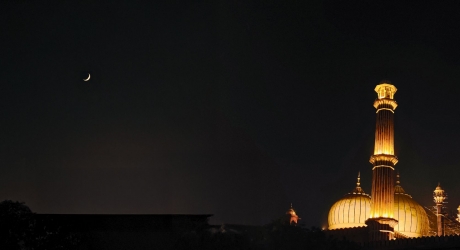The Times of India | March 31, 2025
Eid al-Fitr comes right after the month of Ramzan, a sacred time for Muslims to grow spiritually and strengthen their patience. Ramzan is often called the month of patience because it teaches us to control our desires, remain calm, and build inner strength. After a month of fasting and self-reflection, Eid feels like a reward – a chance to enjoy good food, be with family and friends, and spread kindness and love. It’s a time to remember what truly matters – peace, kindness, sharing, and coming together as a community.
Prophet Muhammad taught us that we should stay calm while fasting, avoid harsh words, and not respond to negativity. If someone provokes us, we should say, ‘I’m fasting.’ (Musnad Ahmad, Hadith 10635.)
That spirit carries into Eid. It’s a chance to reach out, forgive, care for the less fortunate, and spread joy. Eid invites us to open our hearts to family and neighbours, especially those who need us most.
On Eid, people of all ages leave their homes saying, ‘God is the greatest, God is the greatest.’ They gather in gratitude and modesty to perform the Eid prayer – a two-unit congregational prayer that unites the community, young and old, rich and poor, shoulder to shoulder.
Afterwards, heartfelt greetings are exchanged: ‘Eid Mubarak.’ It’s a prayer from the heart – ‘May your Eid be full of peace, love and happiness.’
One of the most beautiful traditions of Eid is Zakat al-Fitr – a mandatory charitable donation given before Eid prayer to ensure that everyone, regardless of circumstance, can join in the celebration. It’s a simple act with deep meaning: No one should be left out of joy today.
Eid is also a time to heal wounds and mend hearts. It’s a chance to let go of grudges, soften misunderstandings, and repair strained relationships. Often, families reunite on this day – sometimes after long silences – sharing smiles, exchanging gifts, and simply being present for one another. In that way, Eid becomes more than a celebration – it becomes a moment of emotional renewal.
This kind of gratitude softens the heart. It makes us more humble, understanding, and gentle with others. When we live with gratitude, we live with love, and that love transforms our homes, communities, and world.
The prophet also reminded us that fasting isn’t just about staying hungry or thirsty – it’s about changing from within. He said: ‘Whoever does not give up false speech, acting upon it, and foolish conduct, then God does not need for him to give up his food and drink.’ (Sahih al-Bukhari, Hadith 6057.)
These words carry a powerful message: if our character doesn’t improve, we’ve missed the deeper purpose of fasting. The same is true for Eid. It isn’t just about dressing up or enjoying special meals. It’s the beautiful ending of a month-long spiritual journey.
In the end, Eid is much more than a religious tradition. It’s a heartfelt reminder of values that touch every human heart: kindness, generosity, gratitude, and love.
Eid brings a quiet light of healing to a divided world, guiding us towards peace, understanding, and human connection.







